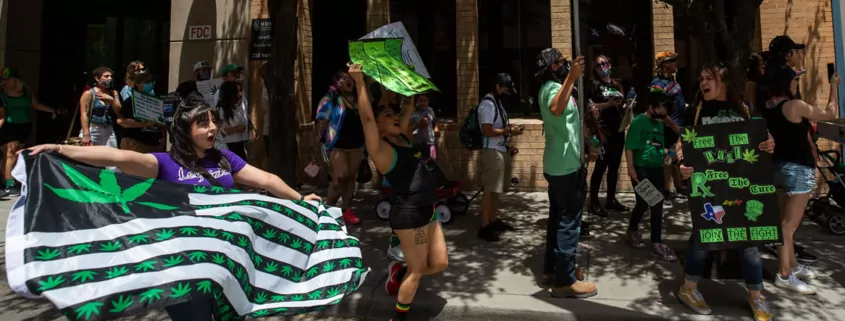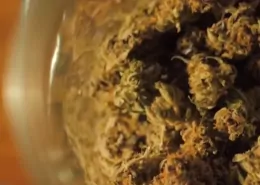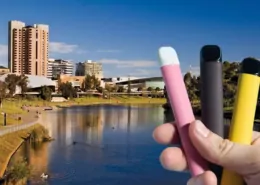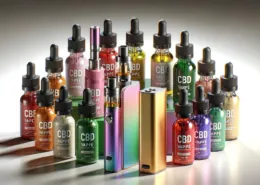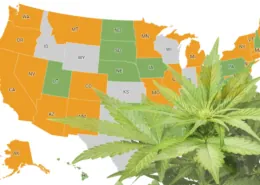Is Weed Legal in Texas? Guide to Marijuana, CBD, and THCA Laws
As the legal landscape for cannabis continues to shift across the United States, Texans are often left navigating a complex and sometimes confusing set of laws. While neighboring New Mexico has embraced a thriving recreational marijuana market, drawing significant business from Texas residents, the Lone Star State maintains a much stricter stance. However, the rise of hemp-derived products like CBD, delta-8 THC, and THCA has introduced new layers of complexity and legal debate, with state leaders battling over the future of these products. This guide provides a comprehensive overview of what you need to know about the legality of marijuana, CBD, and THCA in Texas as of 2025, covering state and federal laws, possession penalties, and the ongoing legislative tug-of-war that will shape the future of cannabis in the state.
Is Recreational Marijuana Legal in Texas?
The short and direct answer is NO. As of 2025, Texas remains one of the 26 states that have not legalized marijuana for recreational use. Possessing, selling, or distributing marijuana for recreational purposes is illegal under Texas state law and carries significant penalties. It’s also crucial to remember that marijuana remains illegal under federal law, classified as a Schedule I controlled substance. This federal status has important implications, especially concerning federal property and border crossings.
What About Medical Marijuana in Texas?
While recreational use is outlawed, Texas does have a limited medical cannabis program. In June, Governor Greg Abbott signed a medical cannabis expansion bill into law, which took effect on September 1st. This program, known as the Texas Compassionate-Use Program (TCUP), is highly restrictive compared to medical marijuana programs in many other states. It allows for the use of low-THC cannabis for patients with specific qualifying medical conditions. Low-THC cannabis is defined as products containing no more than 0.5% by weight of tetrahydrocannabinol (THC), the primary psychoactive compound in marijuana. Access to the program requires a prescription from a registered physician for a specific, limited list of conditions, such as epilepsy, multiple sclerosis, spasticity, terminal cancer, and certain neurodegenerative diseases.
Is THC, THCA, and CBD Legal?
This is where the legal landscape in Texas becomes particularly complicated and is the subject of intense ongoing debate. Following the 2018 Federal Farm Bill, which legalized hemp (defined as cannabis containing no more than 0.3% delta-9 THC by dry weight), Texas passed its own law in 2019 to align with this standard. This opened the door for a massive, largely unregulated market for hemp-derived products.
Understanding the Key Compounds:
- CBD (Cannabidiol): This is a non-psychoactive cannabinoid derived from hemp. CBD products like gummies, oils, and edibles are legal in Texas and are regulated by the Texas Department of State Health Services. They do not produce a “high.”
- THC (Tetrahydrocannabinol): This is the primary psychoactive compound that causes a “high.” While products containing more than 0.3% delta-9 THC are considered illegal marijuana, many products have emerged that contain other intoxicating THC isomers derived from hemp, such as delta-8 THC.
- THCA (Tetrahydrocannabinolic acid): This is a non-psychoactive precursor to THC found in raw cannabis. When heated (e.g., through smoking or vaping), THCA converts into psychoactive delta-9 THC.
The Legislative Battle Over Hemp-Derived THC:
The legality of intoxicating hemp-derived products like delta-8 THC and THCA is at the center of a major political battle in Texas. In the 2025 legislative session, the Texas Legislature passed a bill that would have banned these products. However, Governor Greg Abbott vetoed the bill, stating that while it was “well-intentioned,” it faced “valid constitutional challenges” and infringed on the rights of adults. He then ordered lawmakers into a special session to create a regulatory framework for the industry rather than banning it outright.
Despite the Governor’s call for regulation, the Texas Senate, in a second attempt on July 30th, once again passed a bill to ban hemp-derived THC products. This bill now heads to the Texas House of Representatives for consideration, leaving the future of these products in a state of uncertainty. As of now, many of these products remain in a legal gray area, available for purchase, but their long-term legality is very much in question.
Penalties for Marijuana Possession in Texas
Because recreational marijuana remains illegal, the penalties for possession can be severe. According to Texas NORML, a marijuana legalization advocacy group, the penalties are based on the amount possessed:
- 2 ounces or less: A Class B misdemeanor, punishable by up to 180 days in jail and a fine not to exceed $2,000.
- More than 2 ounces but less than 4 ounces: A Class A misdemeanor, punishable by up to 1 year in jail and a fine not to exceed $4,000.
- More than 4 ounces: Penalties escalate to felony charges with longer potential prison sentences and larger fines.
Local Enforcement Programs in El Paso: Cite and Release
To manage low-level marijuana offenses, some jurisdictions like El Paso have implemented alternative enforcement programs. El Paso’s “cite and release” program, started in 2020, allows officers to issue a citation for misdemeanor amounts of marijuana possession (up to 4 ounces) instead of making an immediate arrest. This is similar to a traffic ticket, where the defendant promises to appear in court at a later date. The El Paso County “First Chance” program, started in 2017, offers another diversionary path.
However, there are eligibility requirements for these programs. To qualify, a suspect must be an adult, reside in El Paso County, and the officer must have a reasonable belief that the suspect will appear in court. Individuals are typically ineligible if they are confirmed gang members, have a history of multiple prior offenses, have outstanding warrants, are under the influence at the time of the incident, or if the possession charge is combined with other criminal charges.
Crossing Borders: New Mexico’s Legal Market and Federal Law
It’s no secret that many Texans, particularly those in border cities like El Paso, travel to neighboring New Mexico to purchase marijuana for recreational use, which has been legal there since April 2022. The economic impact is significant. In July alone, New Mexico sold $37.1 million worth of adult-use cannabis. Since legalization, the state has sold over $1.3 billion in adult-use cannabis.
New Mexico border towns like Sunland Park and Las Cruces are among the state’s highest-grossing locations for marijuana sales, with Sunland Park selling over $144 million and Las Cruces over $124 million in adult-use cannabis since legalization, much of which is attributed to Texas customers.
Can You Bring Legally Purchased Weed from New Mexico into Texas?
The answer is an emphatic NO. While marijuana may be legal to purchase in New Mexico, it remains illegal under both Texas state law and federal law. Attempting to transport marijuana across state lines is a federal offense. U.S. Border Patrol checkpoints are situated along highways leading from New Mexico into Texas, and they operate under federal law. According to the American Civil Liberties Union (ACLU), anyone caught attempting to bring marijuana past a U.S. Border Patrol checkpoint can be arrested and have the drugs seized.
What are New Mexico’s Marijuana Laws?
For those traveling in New Mexico, it’s important to understand their laws as well. Even where it’s legal, there are rules:
- A purchaser must be at least 21 years old.
- An individual is allowed to possess up to two ounces of marijuana.
- Possession of more than two ounces but less than eight ounces is a misdemeanor, punishable by up to a year in jail and a $1,000 fine.
- Possession of more than eight ounces is a felony, carrying a potential punishment of 18 months in jail and a $5,000 fine.
- It is legal to grow up to six marijuana plants for personal use.
Conclusion: A State of Flux for Cannabis in Texas
The legal status of cannabis-related products in Texas remains in a state of significant flux. Recreational marijuana is firmly illegal, and the state’s medical program is highly restrictive. The burgeoning market for hemp-derived THC products like delta-8 and THCA hangs in the balance, subject to an ongoing legislative battle between those who favor a complete ban and those, including the Governor, who are pushing for a regulated market. For now, Texans must navigate this complex environment with caution. While CBD products are legal, and many intoxicating hemp products are still available for purchase, their future is uncertain. And for those tempted by the legal market just across the state line in New Mexico, it’s critical to remember that bringing those products back into Texas remains a serious legal risk under both state and federal law.
- Is Weed Legal in Texas? Guide to Marijuana, CBD, and THCA Laws - August 19, 2025
- Flight Attendant Explains Why Vapes and IQOS Are Banned on Airplanes - August 19, 2025
- BAT France Warns Against Punitive Tax on Nicotine Pouches - August 19, 2025

